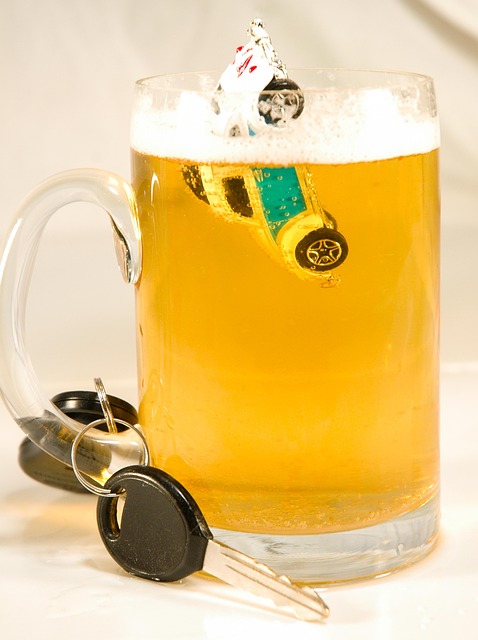Pedestrians have rights during DUI incidents, including safe passage and protection from negligent drivers. Asserting these rights leads to accountability and prevents future accidents. Community service initiatives focused on DUI awareness and legal aid empower individuals to promote pedestrian safety, repair communities, and foster a culture of responsible driving.
Community service plays a vital role in making amends for crimes that impact communities. This article delves into the significance of understanding pedestrians’ rights, particularly in the context of DUI incidents, which often pose severe threats to public safety. We explore legal perspectives on pedestrians’ rights and examine the ripple effects of these incidents. Additionally, we discuss reparative measures for victims and how community service can serve as a powerful tool for justice and healing.
- Understanding Pedestrians' Rights: A Legal Perspective
- The Impact of DUI Incidents on Community Safety
- Reparative Measures for Victims: Support and Justice
- Building Bridges: Community Service as Amends
Understanding Pedestrians' Rights: A Legal Perspective

In many cities, pedestrians face significant risks on roads, especially during DUI incidents. Understanding your rights as a pedestrian is crucial in such situations. From a legal perspective, pedestrians have the right to safe passage across streets and are protected under various traffic laws. In cases where a driver is under the influence, these rights become even more critical.
When a pedestrian asserts their rights after a DUI event, it can lead to justice and compensation for any harm suffered. Pedestrians’ legal protections include the right to be free from reckless or negligent behavior by drivers. This knowledge empowers individuals to take action, ensuring accountability and potentially preventing future occurrences of similar accidents.
The Impact of DUI Incidents on Community Safety

DUI incidents have a profound impact on community safety, posing significant risks not only to drivers but also to pedestrians and other vulnerable road users. When an individual operates a vehicle under the influence of alcohol or drugs, their judgment and reaction time are severely impaired, increasing the likelihood of accidents and causing potential harm to everyone around them. This is particularly concerning for communities where high traffic volumes and pedestrian activity coincide, such as urban areas with busy sidewalks and intersections.
In these situations, pedestrians have the right to be protected from DUI-related dangers. Pedestrians’ rights in DUI incidents encompass their safety while crossing streets, navigating sidewalks, or simply being in public spaces. Community service initiatives aimed at making amends for DUI offenses can play a crucial role in raising awareness about these rights and promoting responsible driving behaviors, ultimately fostering a safer environment for all community members.
Reparative Measures for Victims: Support and Justice

In cases where community service is part of a reparative process, it becomes a powerful tool to address harm caused to victims and communities at large. For individuals who have been involved in DUI incidents affecting pedestrians, community service can play a pivotal role in making amends. This may involve direct support for affected individuals, such as providing transportation or assistance with legal costs associated with the incident. Furthermore, participating in public awareness campaigns about pedestrian rights can be a significant aspect of reparative measures.
Community service initiatives should also focus on advocating for justice and systemic change. This could include volunteering at local legal aid clinics to assist pedestrians who have been victims of DUI crimes or engaging in advocacy work to strengthen laws protecting pedestrians’ rights, such as those related to designated driver programs and strict penalties for drunk driving. Such efforts not only support immediate victims but also contribute to a broader culture of safety and accountability on the roads.
Building Bridges: Community Service as Amends

Community service, when thoughtfully directed, can serve as a powerful amends for those who have caused harm. Building bridges within the community becomes a metaphorical and literal act of reconciliation. For instance, individuals involved in DUI incidents that affected pedestrians’ rights can find redemption through volunteering at local safety awareness programs. By educating youth about drunk driving’s dangers, they actively contribute to preventing future accidents, fostering a safer environment.
This approach not only repairs damaged relationships within the community but also empowers individuals to become advocates for change. It encourages a sense of responsibility and accountability, allowing those who made mistakes to make amends and potentially save others from similar tragedies. This form of service is transformative, turning potential setbacks into opportunities for positive impact.
Community service, when thoughtfully structured, can serve as a powerful form of amends, especially in cases involving DUI incidents that impact pedestrians. By understanding the legal rights of pedestrians and the profound effects of drunk driving, we can facilitate reparative measures that provide justice and support for victims. Through community engagement and service projects, we build bridges to foster healing and strengthen community safety, ensuring that everyone has the right to walk freely and securely. In addressing DUI incidents from a holistic perspective, we not only uphold Pedestrians Rights but also create a more just and resilient community.






